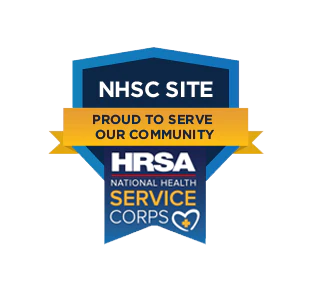The term 'baby blues' is often used to describe a short period of mild depression that women may experience after having a baby. But between eight and 15% of new mothers go on to develop postnatal depression (PND), which is much more severe.
Many new mothers experience this severe depression without recognising it or realising that it is a treatable illness. This causes needless distress, which also affects family and friends.
A small minority of women may develop puerperal psychosis. This is a very acute condition that occurs suddenly within the first six weeks after childbirth.
What are the symptoms?
PND can develop from a worsening of baby blues, or it may develop more slowly and may not be noticeable until several weeks after the baby’s birth.
There are many symptoms of PND. You may feel you can’t cope with your baby and so feel guilty because of this. Or you may feel very sad and cry frequently. Some mothers with PND feel anxious and worry about their own health and that of the baby. They may suffer from panic attacks and feel tense and irritable all the time. Most depressed mothers feel tired and lack energy. They may feel unable to concentrate or find simple tasks confusing. Some mothers experience pains with no apparent cause (other than tension and anxiety). Many have problems sleeping and a poor appetite. Many depressed mothers lose interest in sex.
The symptoms of puerperal psychosis may include manic behaviour. You may feel excited and elated and may talk very fast. You may be hyperactive – not sleeping and rushing about. You may become angry and aggressive if crossed. Some sufferers become severely depressed or have both manic and depressive phases. Other possible symptoms include hallucinations and delusions.
Medical treatment
If your depression lasts longer than a few days, you need to see your doctor. PND can be treated successfully.
Drug treatments usually involve anti-depressants, which are not addictive. These drugs work slowly and improvement is gradual, but if you don’t feel better after a few weeks, ask your doctor for a stronger dose or a different drug. If you find your depression is worse just before or during your period, it may be worth asking about progesterone therapy.
Mothers with puerperal psychosis need to be treated by a psychiatrist. It may be possible to be treated at home, but hospital admission is usually necessary. Some hospitals have specialist mother and baby psychiatric units. Treatment is usually with anti-psychotic and anti-depressant drugs.
How friends and family can help
Family and friends need to be very understanding. Although the illness is temporary and very treatable, you may need lots of help and support before you recover. Everyone around you needs to accept that you are unwell and they need to treat you as if you had a physical illness.
Your family can help make sure you are getting treatment from your doctor and can give you support if you need to go back and ask for your medication it to be changed.
Rest will also help recovery, so let family and friends take on as many of the everyday jobs that you can give up. But when you are feeling better, do as much as you want to. It’s common to have bad and good days with this illness.
If you hate being left alone, ask family and friends to try and organise for someone to be with you for much of the time. Physical contact from a partner in the form of hugging and cuddling can also be very reassuring – especially if the sexual side of your relationship has been affected.
Counselling
If you’ve got PND it’s very beneficial to be able to talk about your illness and its symptoms. Chats with friends and family can be helpful, but it’s also worth asking your doctor, midwife or health visitor about professional counselling.
Self-help
More than anything, you need to believe that you will get better in the end – even if your recovery seems slow. Try to look after yourself, rest as much as you can and try not to worry about aches and pains. Eat well – it’s especially important not to miss meals.
Information taken from Mental Health Foundation.
If you need assistance for yourself or someone you know, don't hesitate to contact us at GBHWC.




